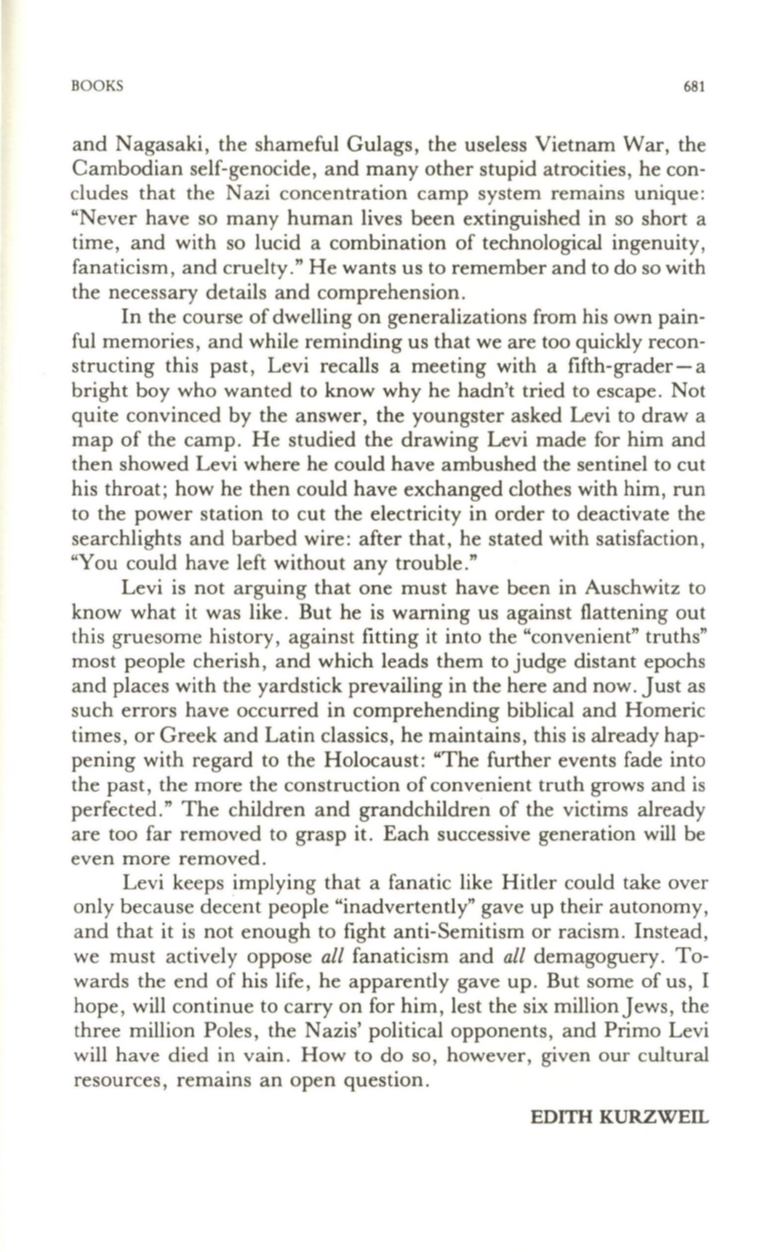
BOOKS
681
and Nagasaki, the shameful Gulags, the useless Vietnam War, the
Cambodian self-genocide, and many other stupid atrocities, he con–
cludes that the Nazi concentration camp system remains unique:
"Never have so many human lives been extinguished in so short a
time, and with so lucid a combination of technological ingenuity,
fanaticism, and cruelty." He wants us to remember and to do so with
the necessary details and comprehension.
In the course of dwelling on generalizations from his own pain–
ful memories, and while reminding us that we are too quickly recon–
structing this past, Levi recalls a meeting with a fifth-grader-a
bright boy who wanted to know why he hadn't tried to escape . Not
quite convinced by the answer, the youngster asked Levi to draw a
map of the camp. He studied the drawing Levi made for him and
then showed Levi where he could have ambushed the sentinel to cut
his throat; how he then could have exchanged clothes with him, run
to the power station to cut the electricity in order to deactivate the
searchlights and barbed wire: after that, he stated with satisfaction,
"You could have left without any trouble."
Levi is not arguing that one must have been in Auschwitz to
know what it was like. But he is warning us against flattening out
this gruesome history, against fitting it into the "convenient" truths"
most people cherish, and which leads them to judge distant epochs
and places with the yardstick prevailing in the here and now. Just as
such errors have occurred in comprehending biblical and Homeric
times, or Greek and Latin classics, he maintains, this is already hap–
pening with regard to the Holocaust: "The further events fade into
the past, the more the construction of convenient truth grows and is
perfected." The children and grandchildren of the victims already
are too far removed to grasp it. Each successive generation will be
even more removed.
Levi keeps implying that a fanatic like Hitler could take over
only because decent people "inadvertently" gave up their autonomy,
and that it is not enough to fight anti-Semitism or racism. Instead,
we must actively oppose
all
fanaticism and
all
demagoguery. To–
wards the end of his life, he apparently gave up. But some of us, I
hope, will continue to carryon for him, lest the six million Jews, the
three million Poles, the Nazis' political opponents, and Primo Levi
will have died in vain. How to do so, however, given our cultural
resources, remains an open question.
EDITH KURZWEIL


